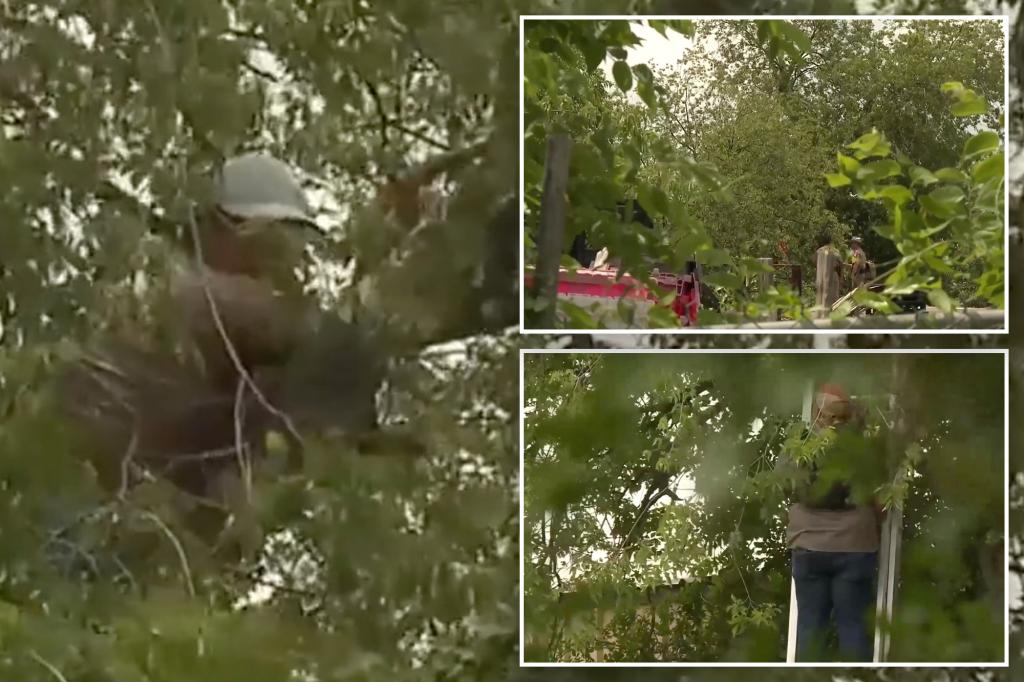Unraveling the Mystery: California Fugitive Linked to Police Commander’s Murder in Mexico
A California fugitive has become the prime suspect in the brazen murder of a high-ranking police commander in Mexico, sparking an international manhunt and raising urgent questions about cross-border crime. The suspect, identified as 34-year-old Mark Delgado, allegedly fled to Tijuana after a 2022 armed robbery in San Diego before being connected to the killing of Commander Luis Rivera last month. Authorities on both sides of the border are scrambling to piece together evidence as the case exposes vulnerabilities in transnational law enforcement cooperation.
The Cross-Border Crime Connection
Delgado’s alleged involvement in Commander Rivera’s execution-style murder has sent shockwaves through law enforcement circles. According to Mexican prosecutors, Rivera was ambushed outside his home in Rosarito on May 17—a killing initially believed to be cartel-related until ballistic tests matched the weapon to Delgado’s prior California crimes. The suspect had been on the U.S. Marshals’ Most Wanted list for 18 months before resurfacing in this violent international incident.
“This case represents our worst nightmare—a violent offender exploiting jurisdictional gaps between nations,” said former FBI special agent Carla Jensen, now a security consultant. “When fugitives cross borders, they often escalate their criminal behavior, believing they’ve found safe harbor.”
Statistics underscore the challenge:
- Over 1,500 U.S. fugitives were apprehended in Mexico between 2020-2023
- Only 28% of cross-border murder cases see suspects extradited within 12 months
- Mexico’s homicide rate remains 25.6 per 100,000—nearly 5 times the U.S. average
A Trail of Violence Across Borders
Court documents reveal Delgado’s criminal trajectory began with drug and weapons charges in Los Angeles before escalating to a 2021 home invasion that left two victims hospitalized. After skipping bail in 2022, he allegedly formed ties with a Tijuana-based theft ring while evading capture. Commander Rivera—a 22-year veteran leading anti-organized crime efforts—reportedly identified Delgado during a routine traffic stop days before his murder.
“Rivera was closing in on several American fugitives operating in the area,” confirmed Baja California police spokesperson Elena Montes. “His murder wasn’t random—it was a strategic elimination.” Surveillance footage shows a man matching Delgado’s distinctive tattoos fleeing the crime scene in Rivera’s stolen patrol vehicle, later found abandoned near the U.S. border.
The Challenges of Binational Investigations
While Mexican authorities have issued an arrest warrant, Delgado’s potential return to California creates legal complexities. Under current extradition agreements:
- Mexico cannot demand return of suspects for crimes committed on Mexican soil
- U.S. Marshals lack jurisdiction to arrest for foreign crimes without proof of illegal re-entry
- Shared ballistic evidence requires months of bureaucratic verification
“We’re essentially waiting for him to slip up on U.S. soil,” admitted San Diego PD Lieutenant Greg Harris. “Until then, he’s a ghost in the system.” The delay has sparked outrage among Rivera’s colleagues, with the Rosarito police union threatening to withhold cross-border intelligence sharing until Delgado is apprehended.
Broader Implications for Border Security
This case has reignited debates about security coordination along the 1,954-mile U.S.-Mexico border. While the Department of Homeland Security reports intercepting 63% more fugitives at ports of entry since 2020, experts note critical gaps:
- Technology disparities: Mexico’s biometric databases cover only 40% of wanted individuals
- Resource allocation: California shares just 12 task force officers with Baja California
- Legal barriers: Differing evidence standards frequently stall prosecutions
“We need real-time data integration,” argued Congresswoman Sara Chen (D-CA), who chairs the Border Security Subcommittee. “A fugitive shouldn’t gain immunity by crossing an invisible line.” Her proposed Cross-Border Justice Act would establish joint investigation teams, though the bill faces opposition over sovereignty concerns.
What Comes Next in the Manhunt?
With Interpol now issuing a Red Notice, authorities are pursuing multiple leads:
- Tracking Delgado’s known associates in San Diego’s Logan Heights gang enclave
- Monitoring border camera footage for his distinctive neck tattoos
- Following money trails from recent pawn shop transactions
Meanwhile, Commander Rivera’s funeral drew over 2,000 mourners last week, including delegations from six U.S. law enforcement agencies. As his widow accepted posthumous honors, she made a tearful plea: “Don’t let his death be just another statistic in this endless war.”
For citizens living in border communities, the case underscores their unique vulnerabilities. “We’re not two separate worlds—crime flows like water here,” said Tijuana business owner Miguel Ángel Reyes, whose security cameras captured possible footage of Delgado days before the murder. “Until both countries treat this as one shared problem, the killers will keep winning.”
Call to Action: Anyone with information about Mark Delgado’s whereabouts is urged to contact the FBI’s San Diego field office at (858) 320-1800 or submit tips online at tips.fbi.gov. Rewards totaling $50,000 are being offered for information leading to his capture.
See more Update My News



